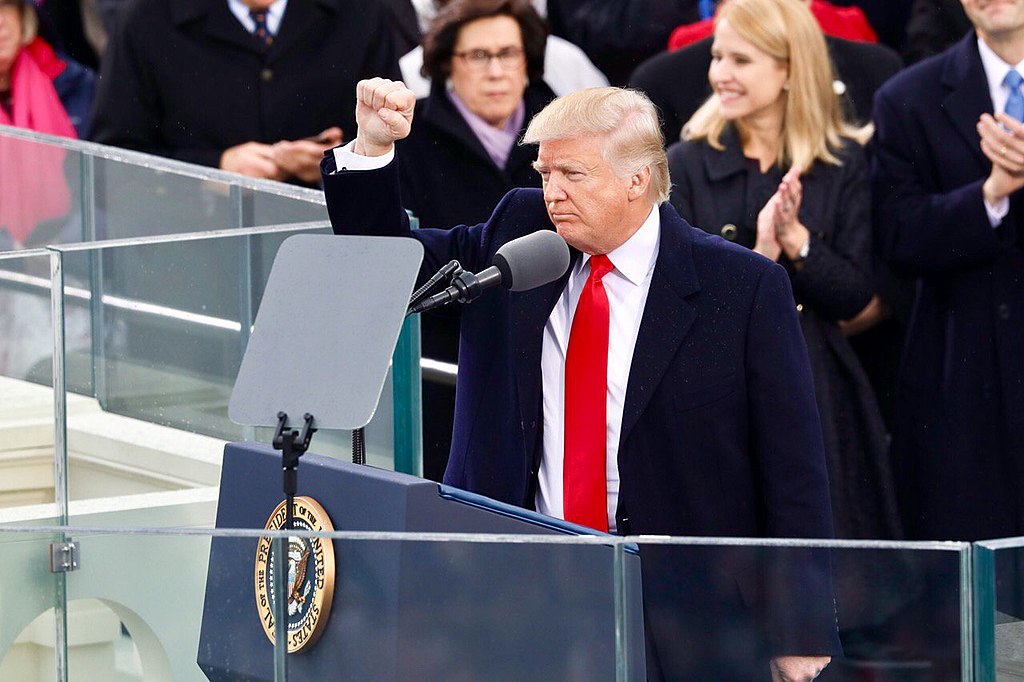President-elect Donald Trump pledged Sunday to terminate birthright citizenship through executive action, sparking immediate controversy and skepticism from legal experts. Speaking on NBC’s Meet the Press, Trump outlined sweeping immigration reforms, including plans for mass deportations and curbing automatic citizenship for children born in the U.S. to undocumented immigrants.
“We’re going to end that because it’s ridiculous,” Trump said, adding that executive action would be the preferred tool. However, legal experts quickly pointed to the formidable barrier of the 14th Amendment, which has guaranteed birthright citizenship for over 120 years.
Legal Precedent Casts Doubt on Trump’s Plan
The cornerstone of Trump’s proposal faces a legal challenge rooted in the 1898 Supreme Court case United States v. Wong Kim Ark. The Court ruled that children born on U.S. soil, regardless of their parents’ immigration status, are entitled to citizenship under the 14th Amendment.
In an interview with KQED, Leti Volpp, a professor at the University of California, Berkeley, emphasized the precedent’s durability. “The legal system is based on precedent, and there has been no chipping away at Wong Kim Ark through other decisions,” Volpp said.
Critics also challenged Trump’s claim that the U.S. is the only country with birthright citizenship. Data from the Library of Congress confirms over 30 nations, including Canada and Brazil, have similar provisions.
Immigration Policies Stir Heated Debate
Beyond birthright citizenship, Trump detailed plans for mass deportations, prioritizing individuals with criminal records but expanding to include broader undocumented populations. His approach to mixed-status families—where some members are U.S. citizens and others are not—has drawn significant scrutiny.
“I don’t want to break up families,” Trump stated, proposing instead to deport entire family units. The policy could impact an estimated 4 million families, raising ethical and legal questions about separating American citizen children from their home country.
Trump ally Tom Homan, the former acting director of Immigration and Customs Enforcement, defended the plan, asserting that families can be deported together. Critics argue the policy disregards the rights of American-born children.
Meanwhile, Senator Lindsey Graham announced plans to introduce legislation and pursue a constitutional amendment to end birthright citizenship. Constitutional scholars, however, note the difficulty of amending the Constitution, which requires overwhelming bipartisan support and ratification by 38 state legislatures.
Online Reactions Reflect Public Division
Trump’s comments ignited widespread debate on social media:
- @PolicyWatcher: “Ending birthright citizenship? Sounds unconstitutional and morally questionable. #14thAmendment #ImmigrationReform”
- @LawProfSmith: “Precedent matters. Wong Kim Ark is solid. Trump’s plan will hit a legal brick wall. #Constitution”
- @RealPatriotUSA: “Finally, a leader willing to tackle the immigration mess head-on. Go Trump! #EndBirthrightCitizenship”
- @MigrantVoices: “Deporting families and targeting birthright citizenship? These are human lives, not political props. #ImmigrantRights”
- @GrahamForSenate: “It’s time to stop birthright citizenship abuse. Legislation is coming. #ImmigrationReform”
- @DreamerSupport: “Protect Dreamers, not tear families apart. This isn’t reform; it’s cruelty. #DACA #14thAmendment”



 Federal Judge Restores Funding for Gateway Rail Tunnel Project
Federal Judge Restores Funding for Gateway Rail Tunnel Project  US Pushes Ukraine-Russia Peace Talks Before Summer Amid Escalating Attacks
US Pushes Ukraine-Russia Peace Talks Before Summer Amid Escalating Attacks  Trump Signs Executive Order Threatening 25% Tariffs on Countries Trading With Iran
Trump Signs Executive Order Threatening 25% Tariffs on Countries Trading With Iran  Norway Opens Corruption Probe Into Former PM and Nobel Committee Chair Thorbjoern Jagland Over Epstein Links
Norway Opens Corruption Probe Into Former PM and Nobel Committee Chair Thorbjoern Jagland Over Epstein Links  Trump Endorses Japan’s Sanae Takaichi Ahead of Crucial Election Amid Market and China Tensions
Trump Endorses Japan’s Sanae Takaichi Ahead of Crucial Election Amid Market and China Tensions  China Warns US Arms Sales to Taiwan Could Disrupt Trump’s Planned Visit
China Warns US Arms Sales to Taiwan Could Disrupt Trump’s Planned Visit  Iran–U.S. Nuclear Talks in Oman Face Major Hurdles Amid Rising Regional Tensions
Iran–U.S. Nuclear Talks in Oman Face Major Hurdles Amid Rising Regional Tensions  New York Legalizes Medical Aid in Dying for Terminally Ill Patients
New York Legalizes Medical Aid in Dying for Terminally Ill Patients  U.S. Announces Additional $6 Million in Humanitarian Aid to Cuba Amid Oil Sanctions and Fuel Shortages
U.S. Announces Additional $6 Million in Humanitarian Aid to Cuba Amid Oil Sanctions and Fuel Shortages  Pentagon Ends Military Education Programs With Harvard University
Pentagon Ends Military Education Programs With Harvard University  TrumpRx.gov Highlights GLP-1 Drug Discounts but Offers Limited Savings for Most Americans
TrumpRx.gov Highlights GLP-1 Drug Discounts but Offers Limited Savings for Most Americans  Trump Lifts 25% Tariff on Indian Goods in Strategic U.S.–India Trade and Energy Deal
Trump Lifts 25% Tariff on Indian Goods in Strategic U.S.–India Trade and Energy Deal  U.S.-India Trade Framework Signals Major Shift in Tariffs, Energy, and Supply Chains
U.S.-India Trade Framework Signals Major Shift in Tariffs, Energy, and Supply Chains  Netanyahu to Meet Trump in Washington as Iran Nuclear Talks Intensify
Netanyahu to Meet Trump in Washington as Iran Nuclear Talks Intensify  Ohio Man Indicted for Alleged Threat Against Vice President JD Vance, Faces Additional Federal Charges
Ohio Man Indicted for Alleged Threat Against Vice President JD Vance, Faces Additional Federal Charges  Jack Lang Resigns as Head of Arab World Institute Amid Epstein Controversy
Jack Lang Resigns as Head of Arab World Institute Amid Epstein Controversy 































